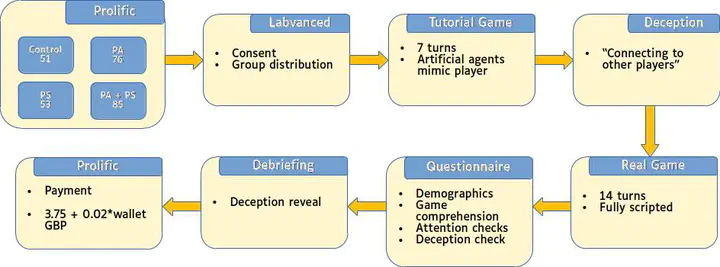
Abstract
Tackling many of humanity’s contemporary challenges requires individuals to cooperate in so-called collective risk dilemmas, i.e. scenarios where cooperation is costly yet required to reach col- lective targets and prevent catastrophic outcomes. It remains a scientific challenge to understand which external incentives enable cooperation and whether that can be facilitated through socially interactive agents. In this paper, we evaluate human cooperation in the presence of an artificial virtual agent. We developed a game called The Pest Control, in which five players attempt to maxi- mize their earnings while avoiding being infested by a spreading pest. Controlling the pest requires costly public good contributions, yet free-riding on the efforts of others leads to maximum individ- ual payoffs. We conducted an online experiment and analyzed the data of 265 participants, where we manipulated the feedback strat- egy of the virtual agent in a between-subject design. Our results suggest that feedback highlighting salient elements of the game increases participants’ cooperation, while feedback regarding the consequences of actions slightly promotes selfish behaviors. Our study provides insight into how future artificial agents and AI sys- tems could be designed to promote cooperation in complex social dilemmas by leveraging different strategies.